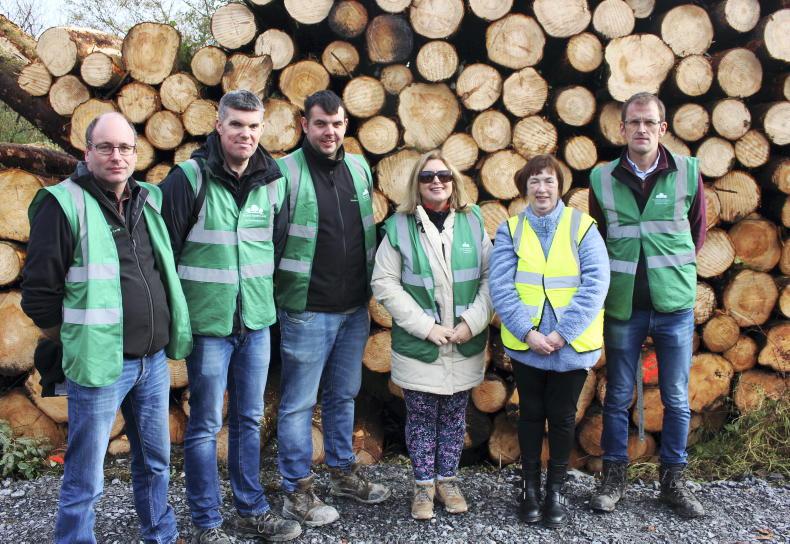Scientists at Trinity College Dublin (TCD) and University College Dublin (UCD) are teaming up with Coillte to examine the multiple benefits of forests and enhance sustainable management of woodlands.
The collaboration, known as the FOR-ES research project, which Trinity will lead, will look to co-develop tools for sustainable forestry management decision-making.
FOR-ES was launched by Minister for Agriculture Charlie McConalogue on Tuesday.
Holistic approach
Project leaders say the success of Irish forestry will involve ensuring it is managed in a way that recognises the benefits it provides through timber, supporting biodiversity, carbon capture and public amenity.
FOR-ES will implement a "more holistic approach" when examining Irish forestry, known as natural capital accounting.
The project will develop natural capital accounts for specific forest sites. These accounts will capture information on forest natural capital stocks (the amount, location and condition of forest habitats) and the flows of ecosystem services (in terms of commercial timber production, carbon sequestration, water retention, biodiversity and recreation).
Coillte involvement
Project leaders said the involvement of Coillte as Ireland’s largest forestry company underlines the potential of the project and the interest in developing new processes for managing Ireland’s forests.
Trinity School of Natural Sciences professor and project lead Jane Stout said: "[Our] interdisciplinary approach is really important, because assessing natural capital stocks and valuing benefits from forests can help enable sustainable decision-making.
"[This] is crucial to address the current biodiversity and climate crisis."
Coillte CEO Imelda Hurley said: "Forests provide multiple benefits - they clean the air we breathe, are key to tackling climate change, provide essential wood for building our homes and create beautiful biodiverse habitats.
"This project will allow us to better understand and value those benefits."
The tools developed in the FOR-ES initiative aim to inform forest managers in forest design and management.
Read more
Forests offer less flood protection than hoped – new research
Scientists at Trinity College Dublin (TCD) and University College Dublin (UCD) are teaming up with Coillte to examine the multiple benefits of forests and enhance sustainable management of woodlands.
The collaboration, known as the FOR-ES research project, which Trinity will lead, will look to co-develop tools for sustainable forestry management decision-making.
FOR-ES was launched by Minister for Agriculture Charlie McConalogue on Tuesday.
Holistic approach
Project leaders say the success of Irish forestry will involve ensuring it is managed in a way that recognises the benefits it provides through timber, supporting biodiversity, carbon capture and public amenity.
FOR-ES will implement a "more holistic approach" when examining Irish forestry, known as natural capital accounting.
The project will develop natural capital accounts for specific forest sites. These accounts will capture information on forest natural capital stocks (the amount, location and condition of forest habitats) and the flows of ecosystem services (in terms of commercial timber production, carbon sequestration, water retention, biodiversity and recreation).
Coillte involvement
Project leaders said the involvement of Coillte as Ireland’s largest forestry company underlines the potential of the project and the interest in developing new processes for managing Ireland’s forests.
Trinity School of Natural Sciences professor and project lead Jane Stout said: "[Our] interdisciplinary approach is really important, because assessing natural capital stocks and valuing benefits from forests can help enable sustainable decision-making.
"[This] is crucial to address the current biodiversity and climate crisis."
Coillte CEO Imelda Hurley said: "Forests provide multiple benefits - they clean the air we breathe, are key to tackling climate change, provide essential wood for building our homes and create beautiful biodiverse habitats.
"This project will allow us to better understand and value those benefits."
The tools developed in the FOR-ES initiative aim to inform forest managers in forest design and management.
Read more
Forests offer less flood protection than hoped – new research










SHARING OPTIONS